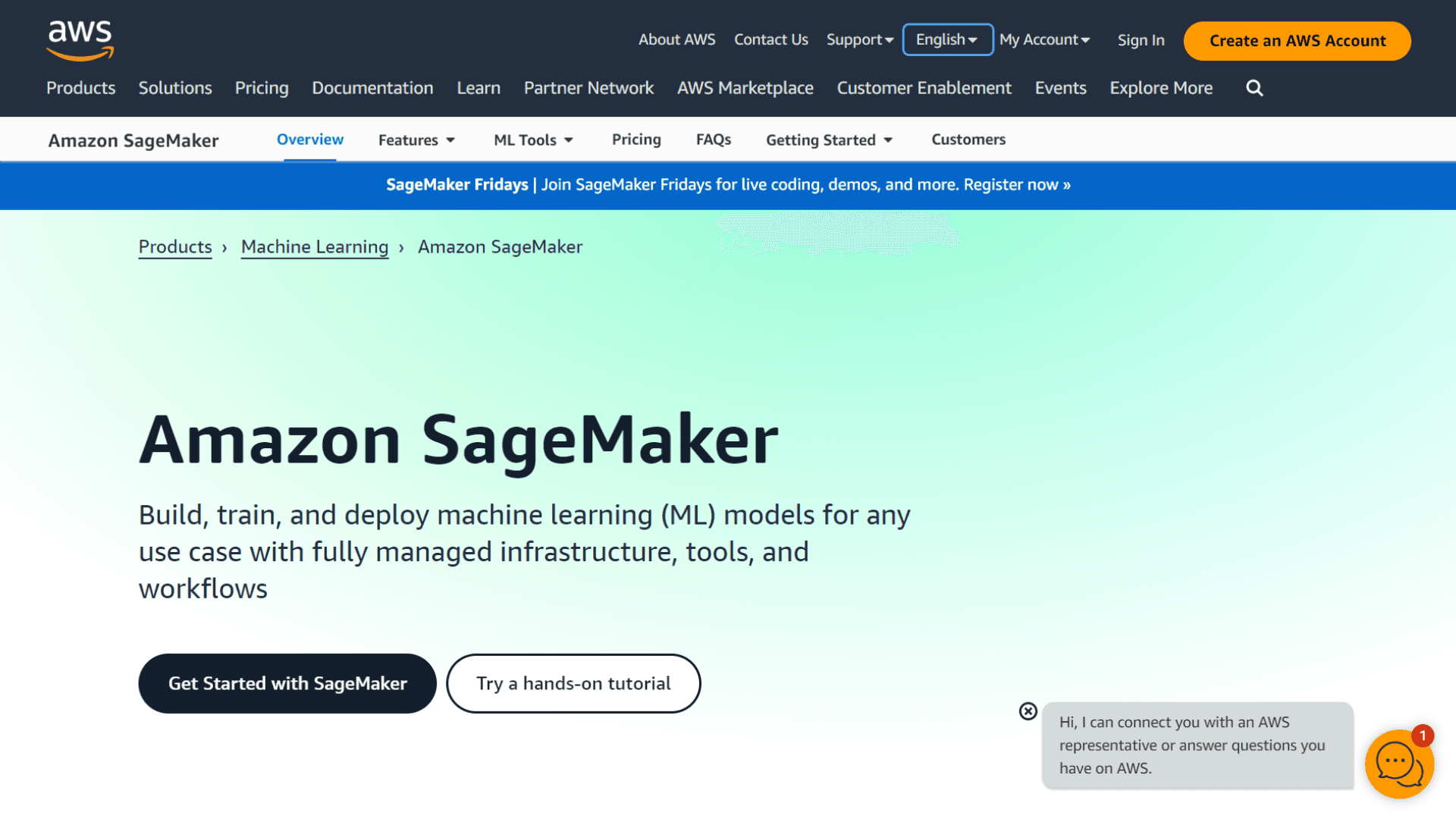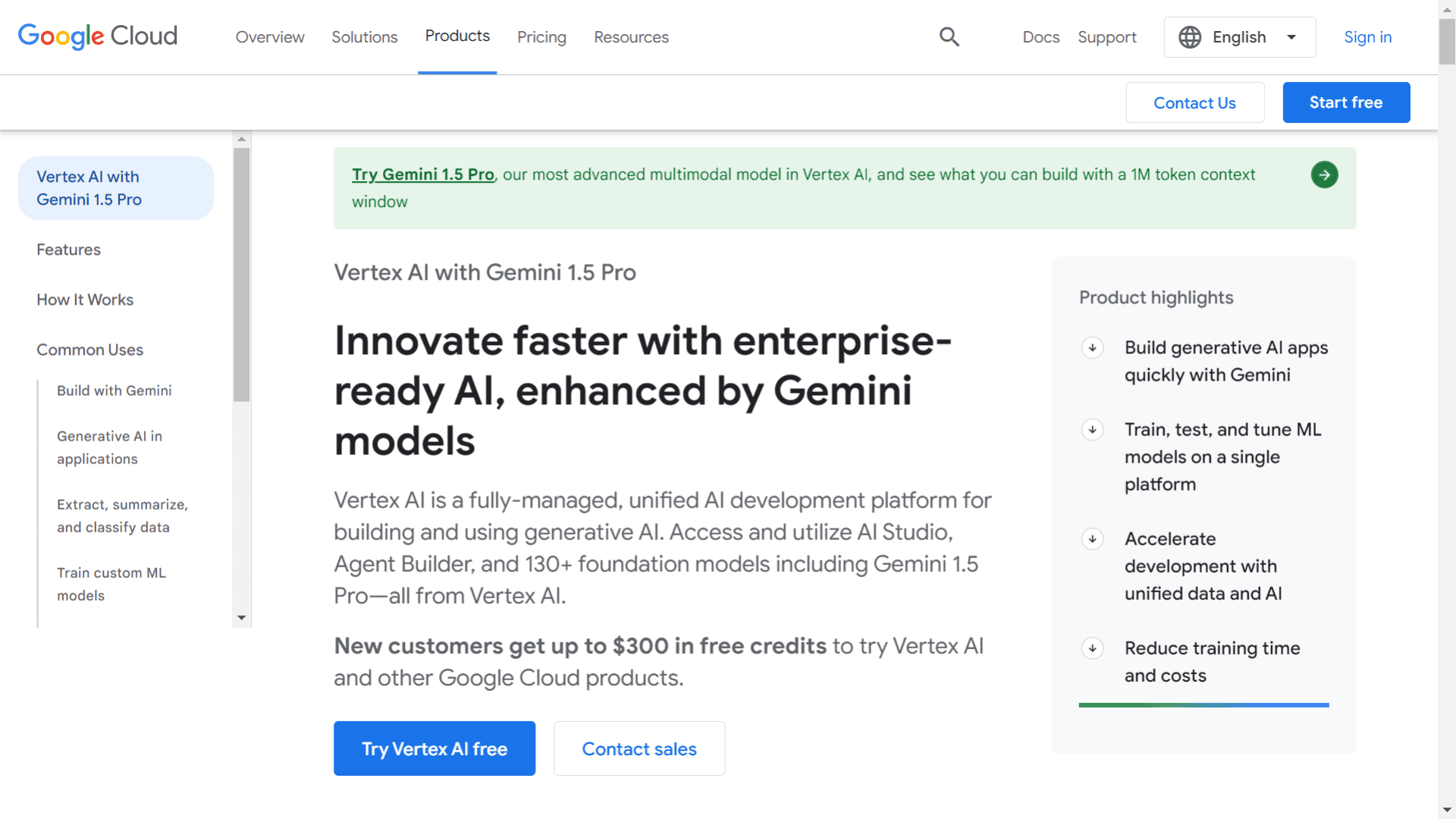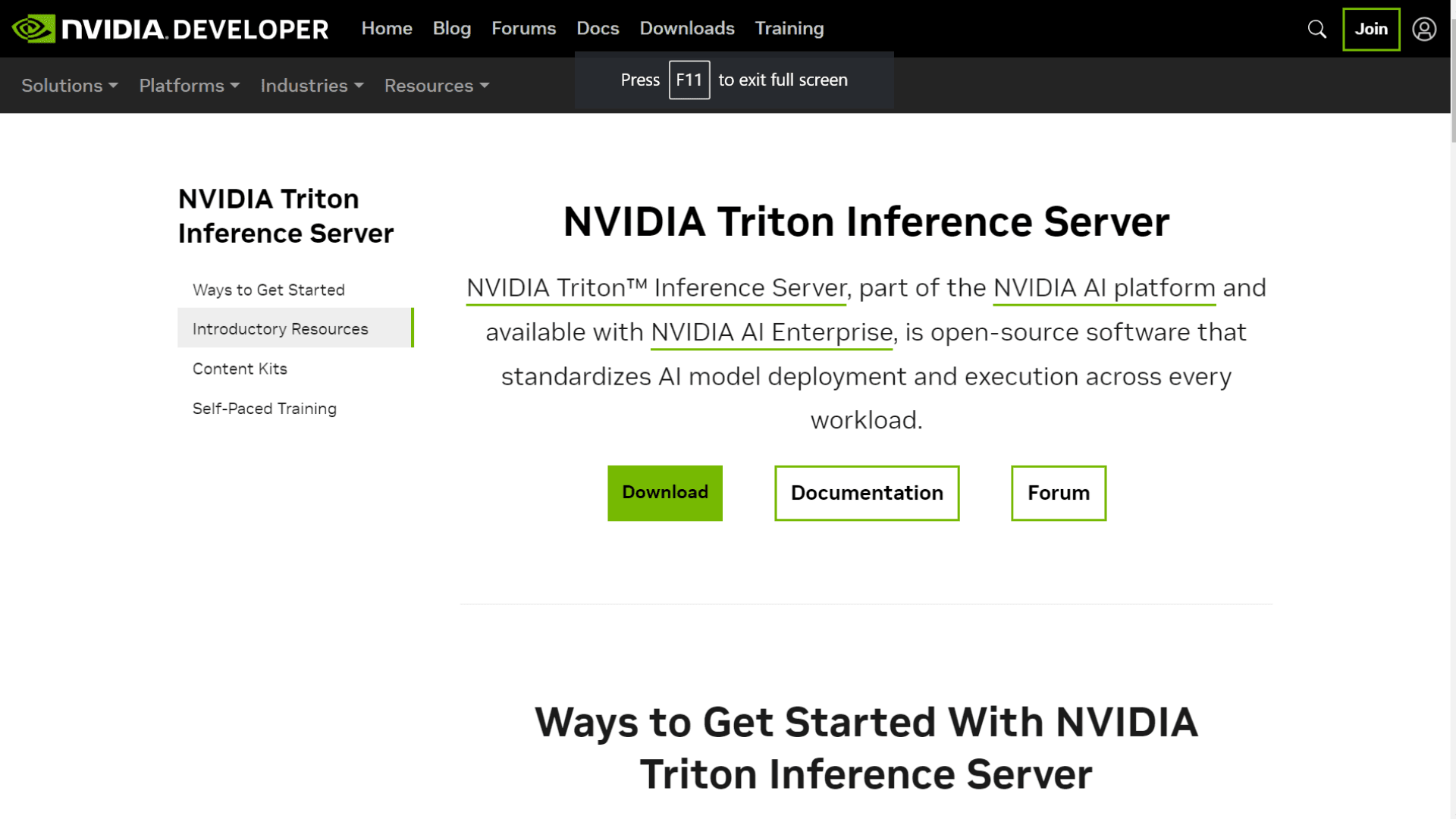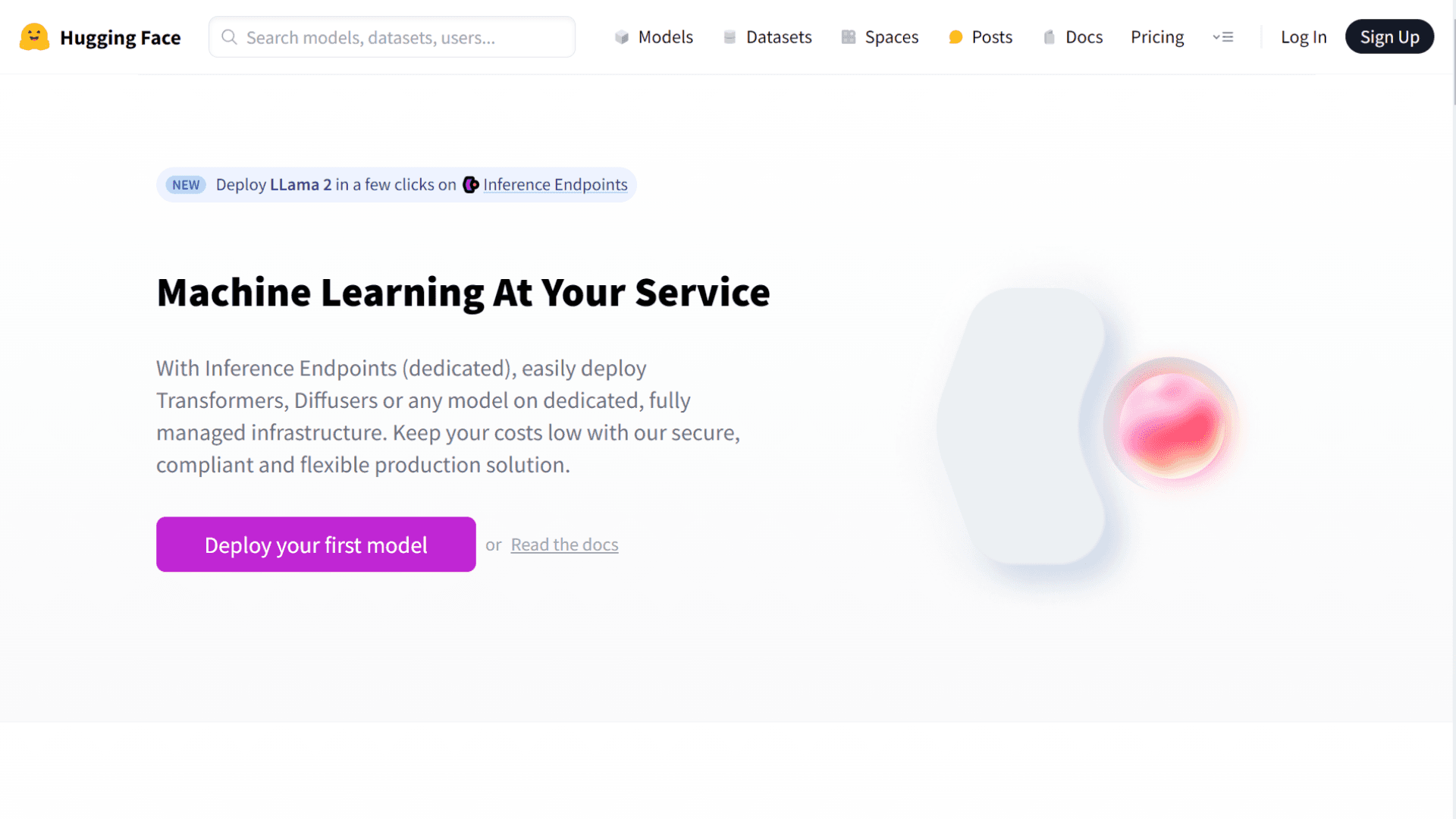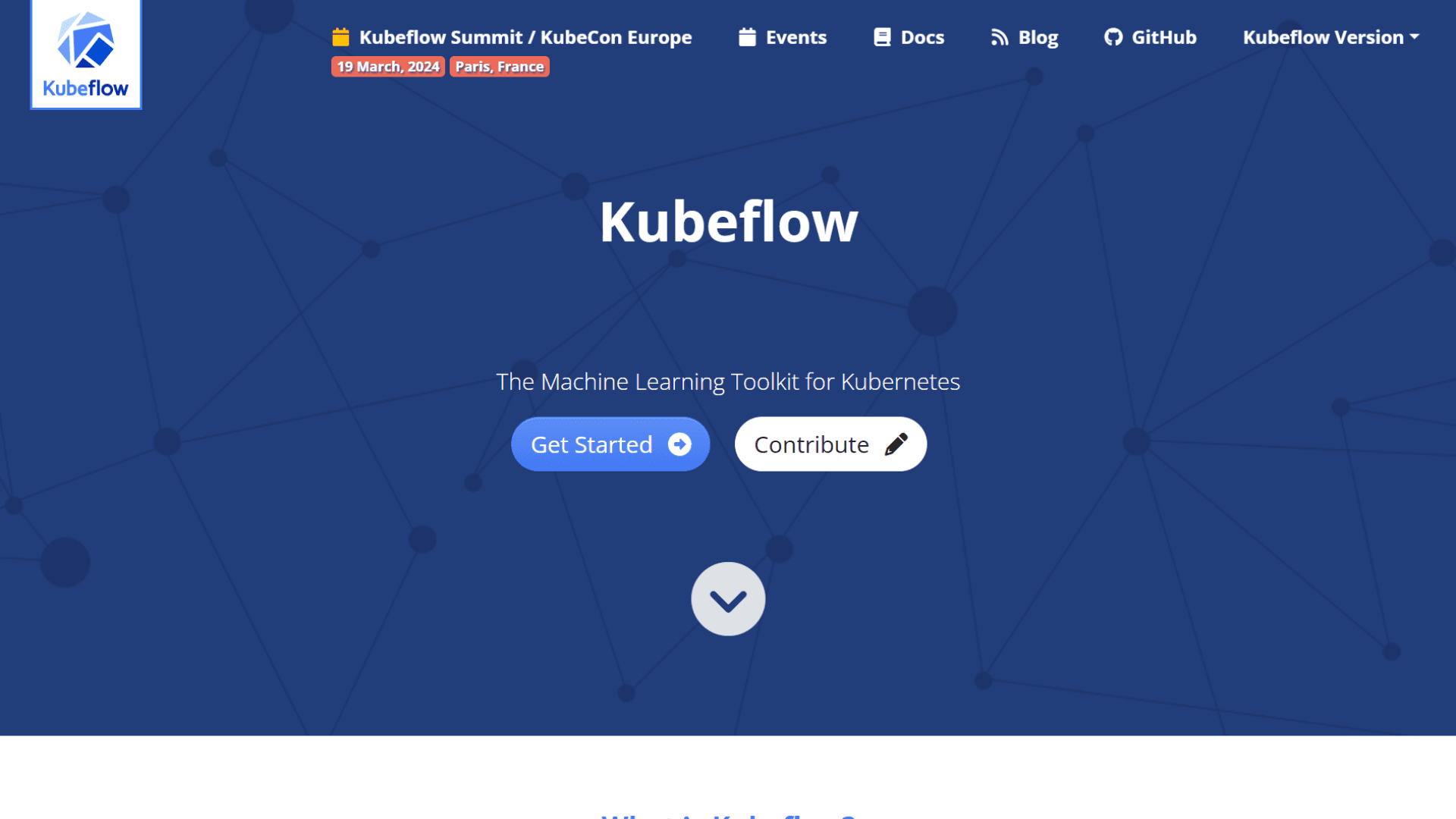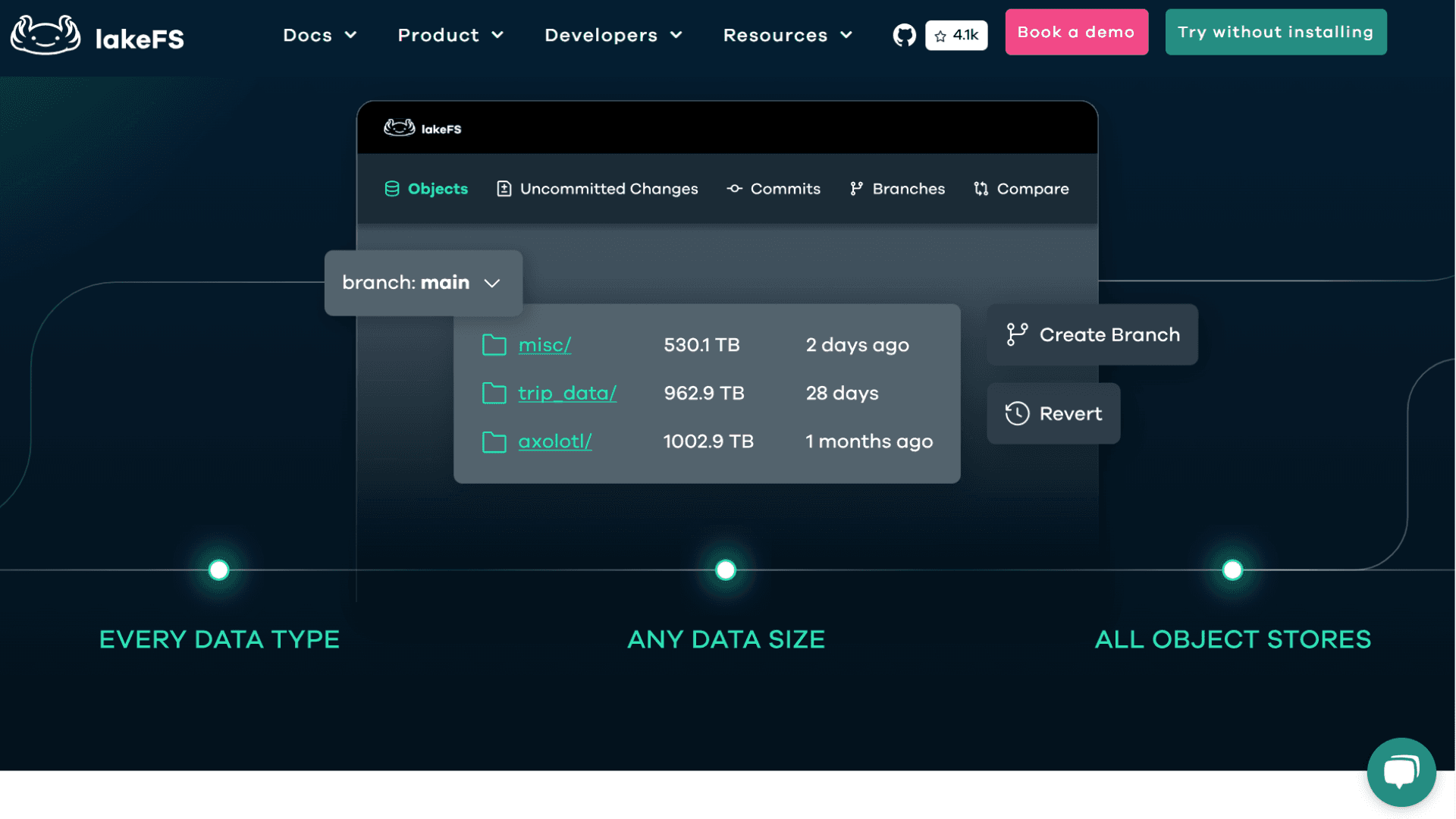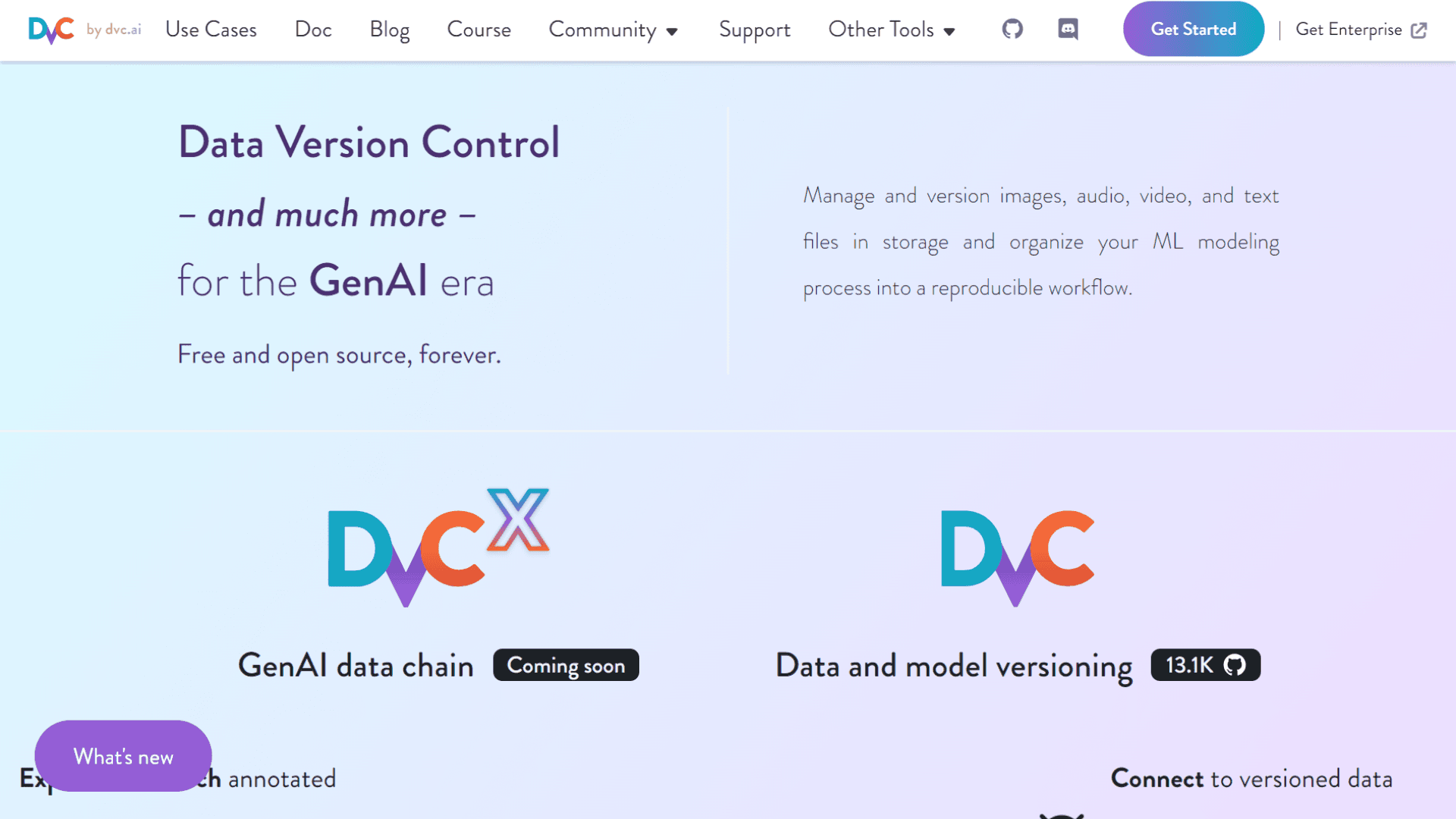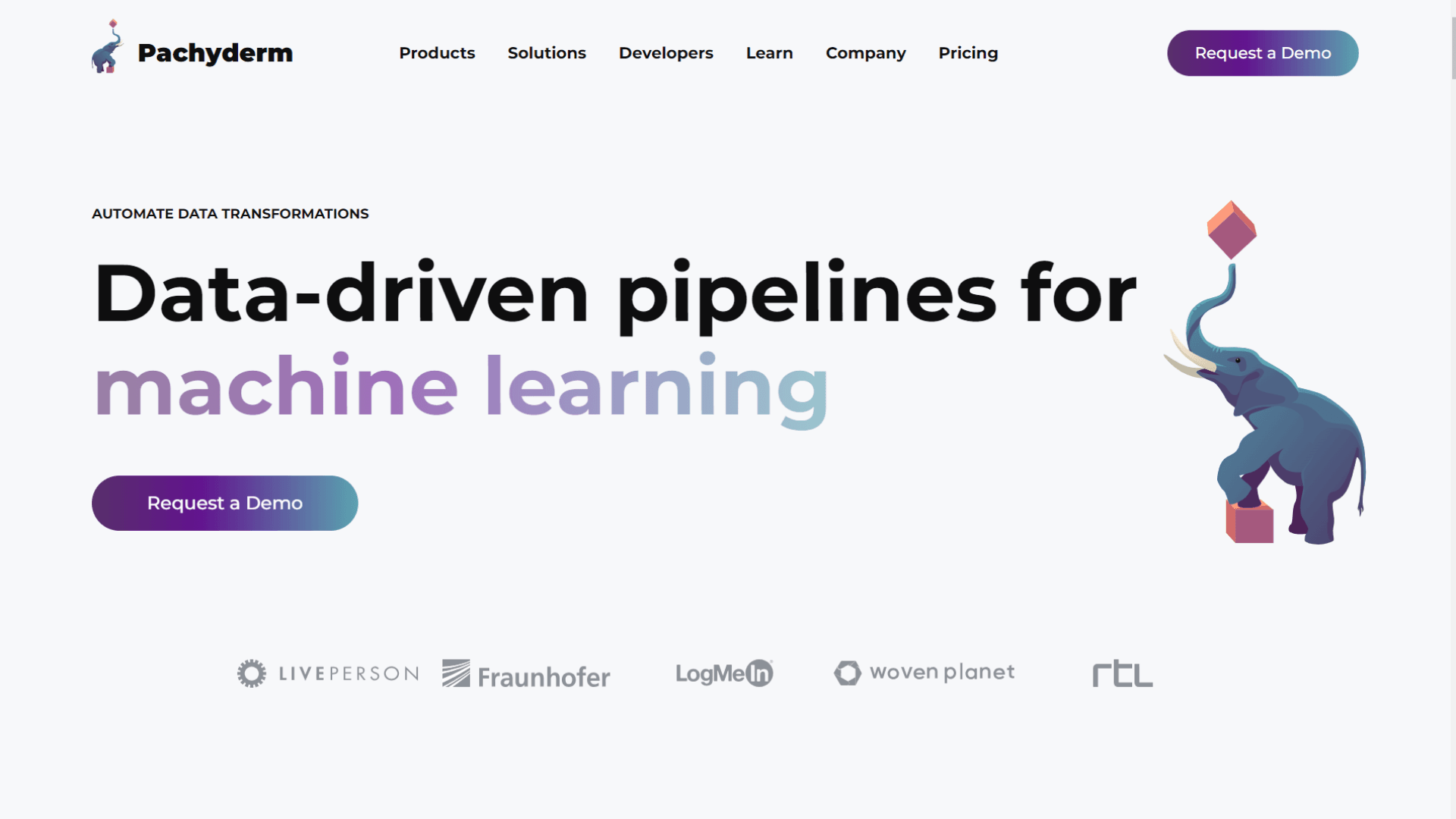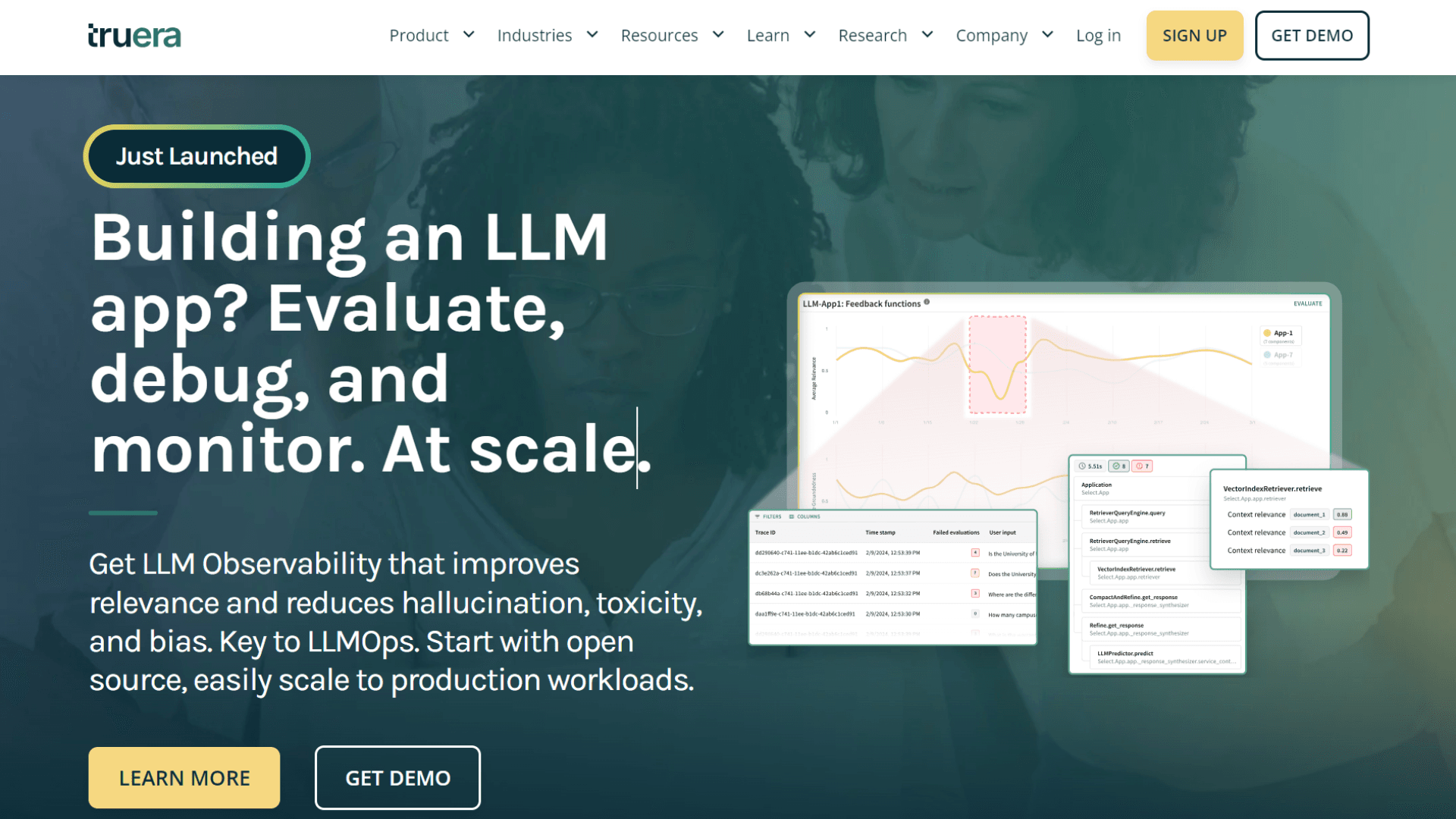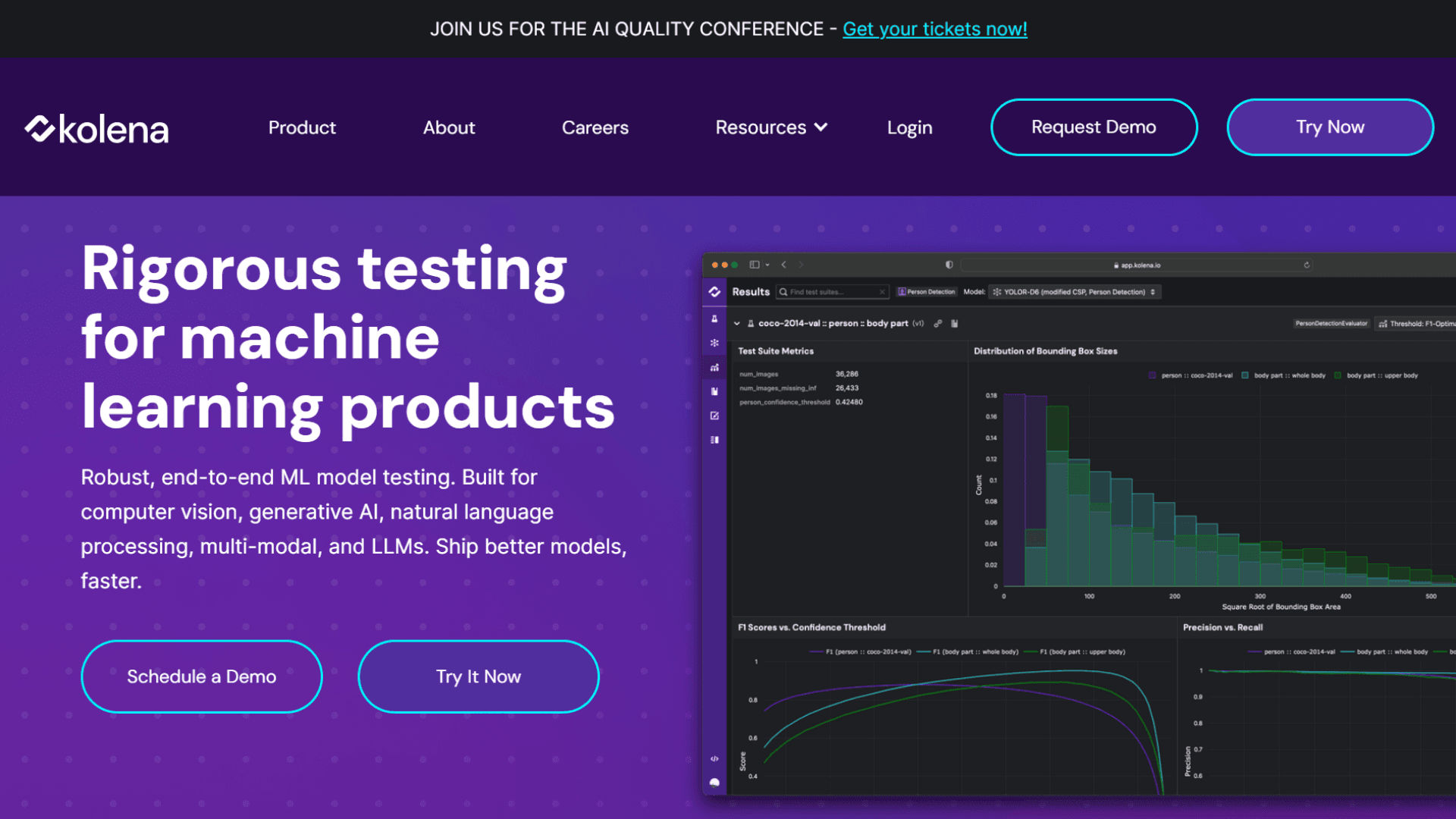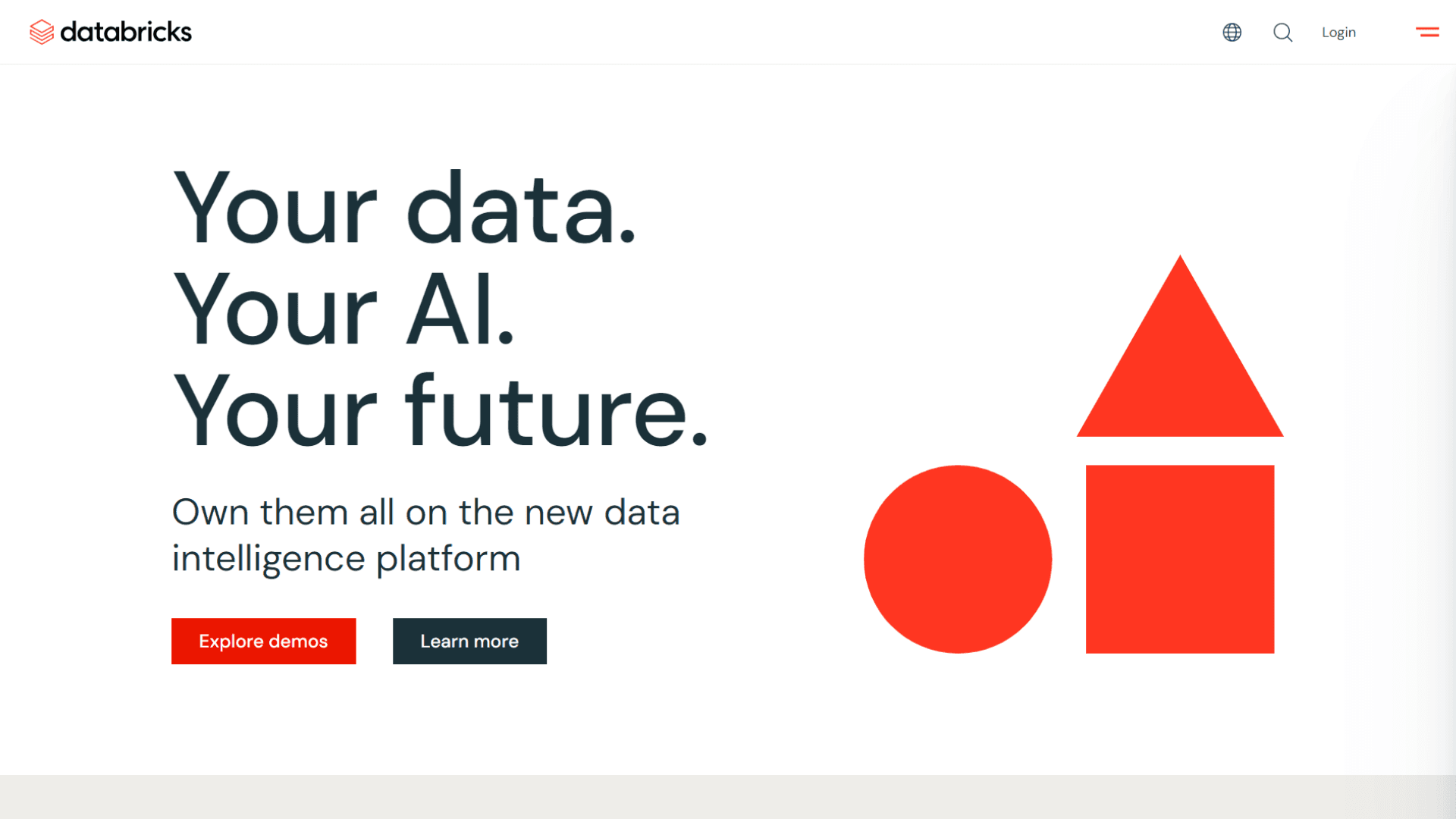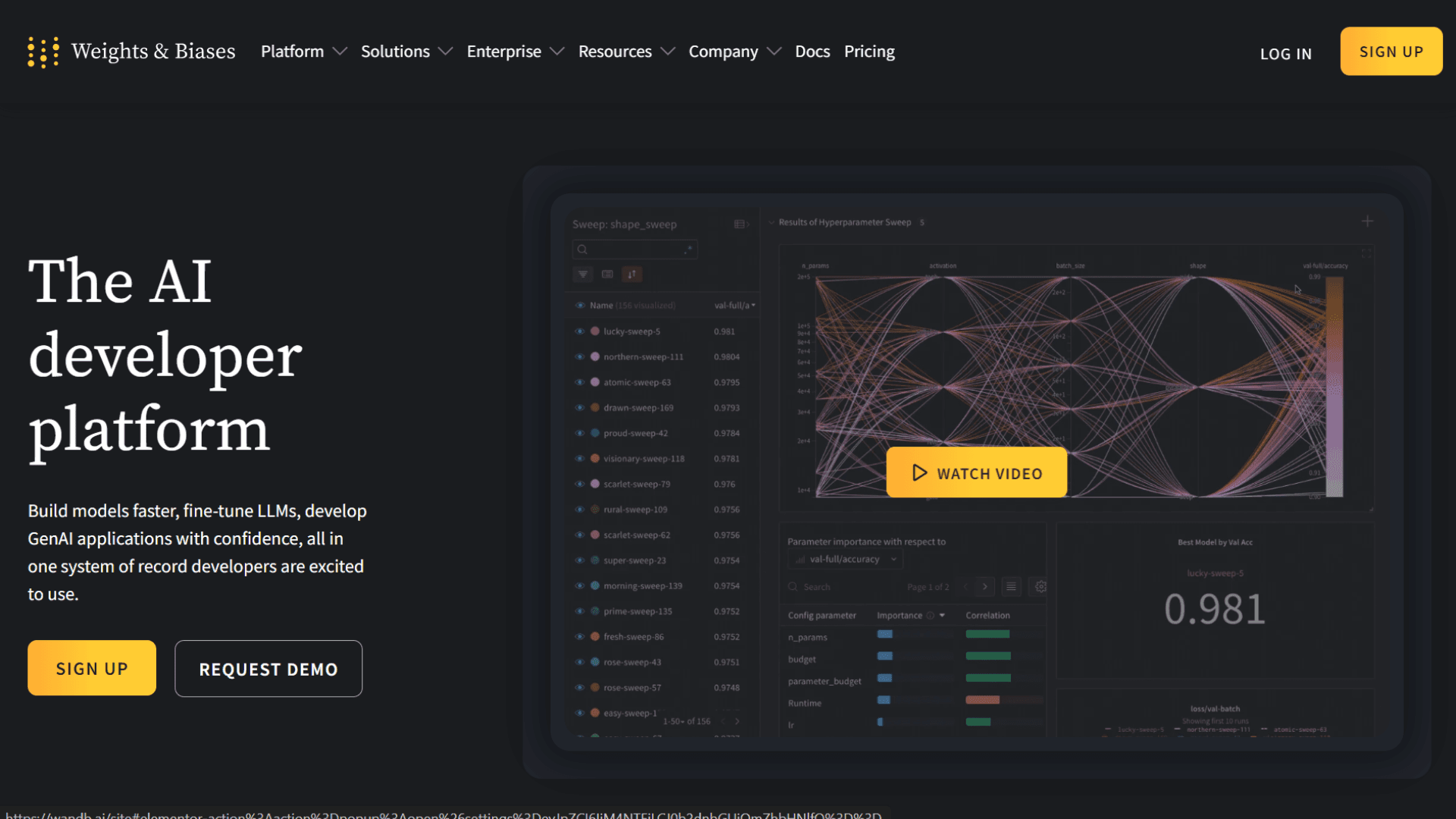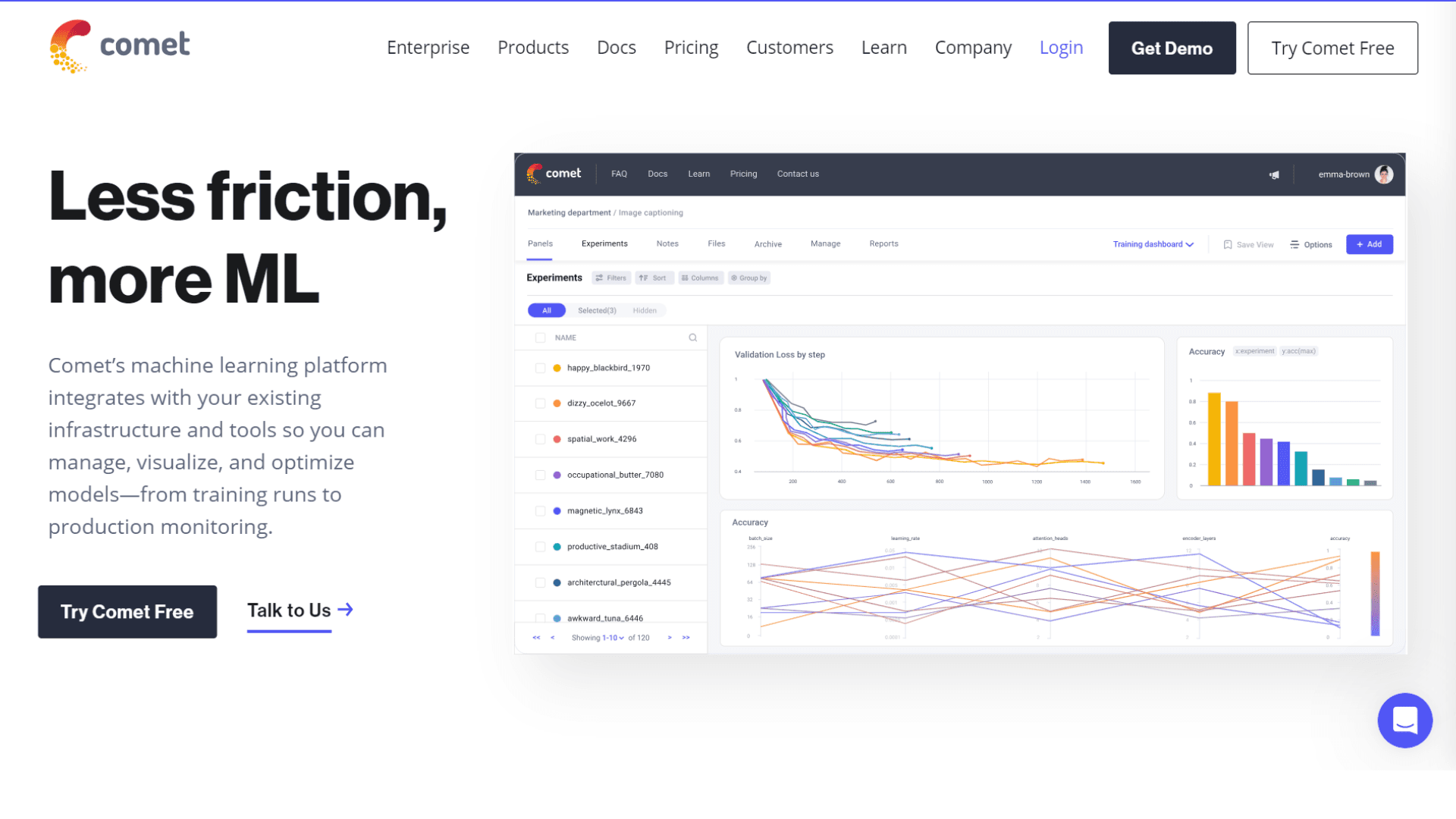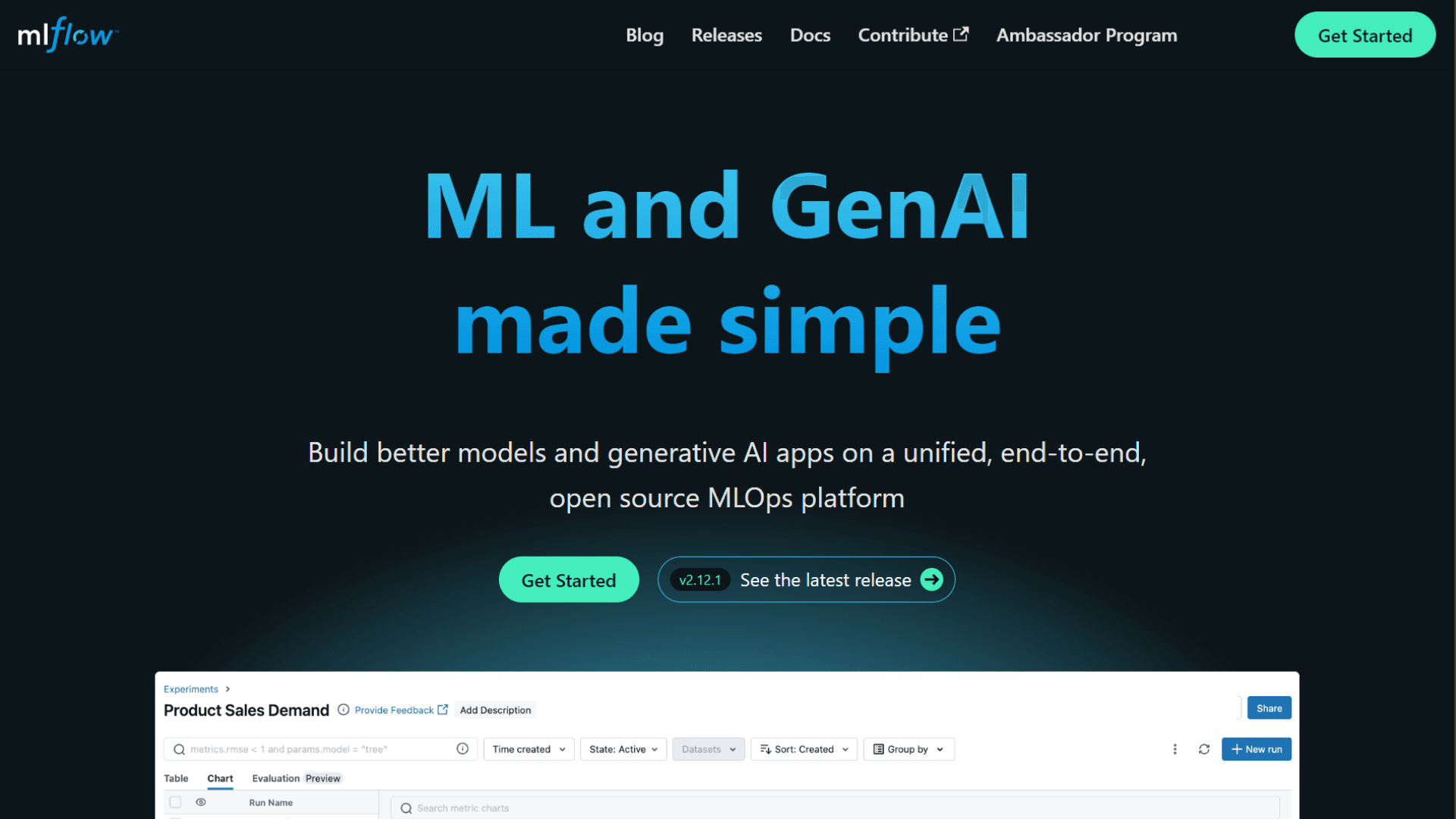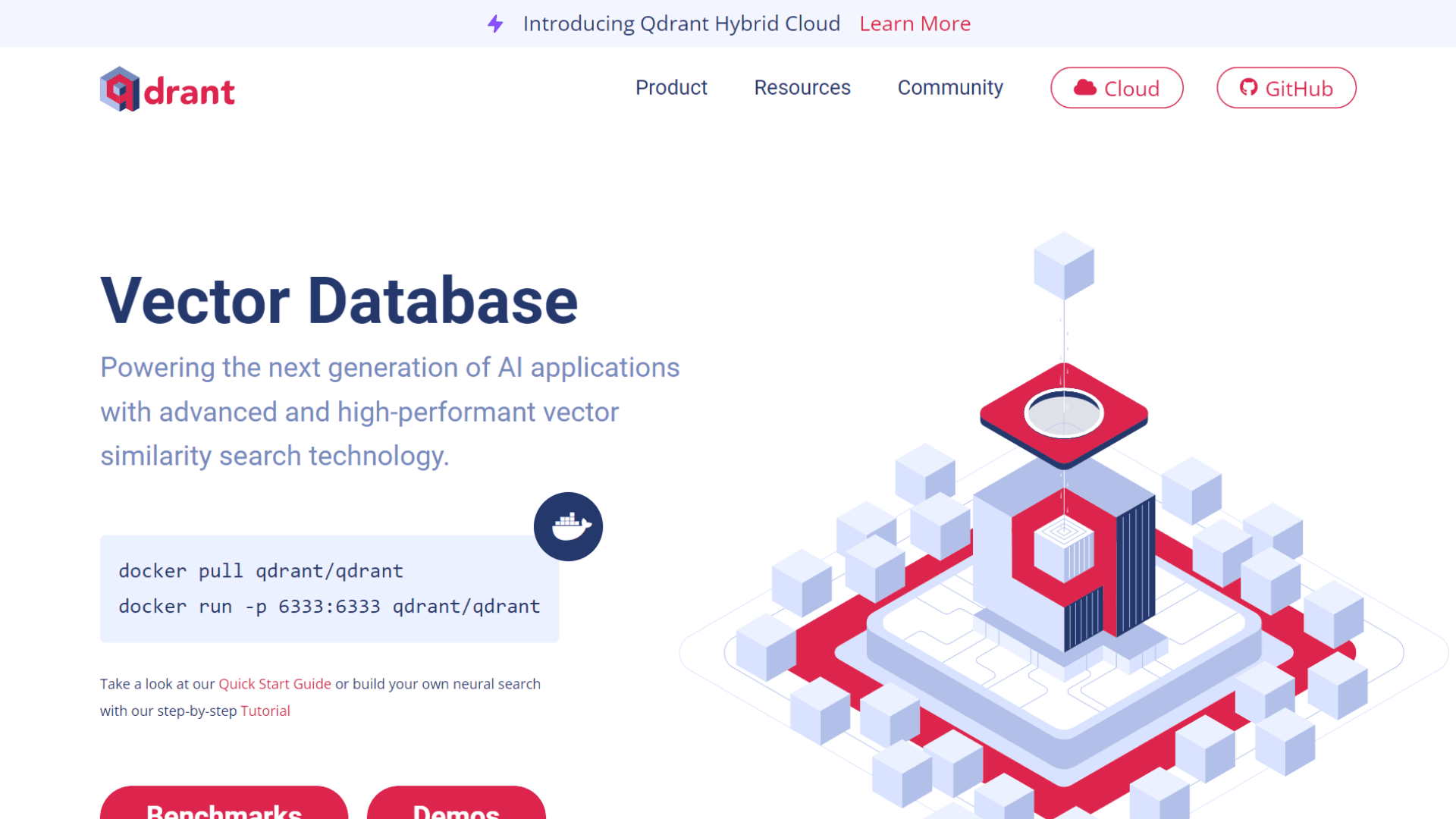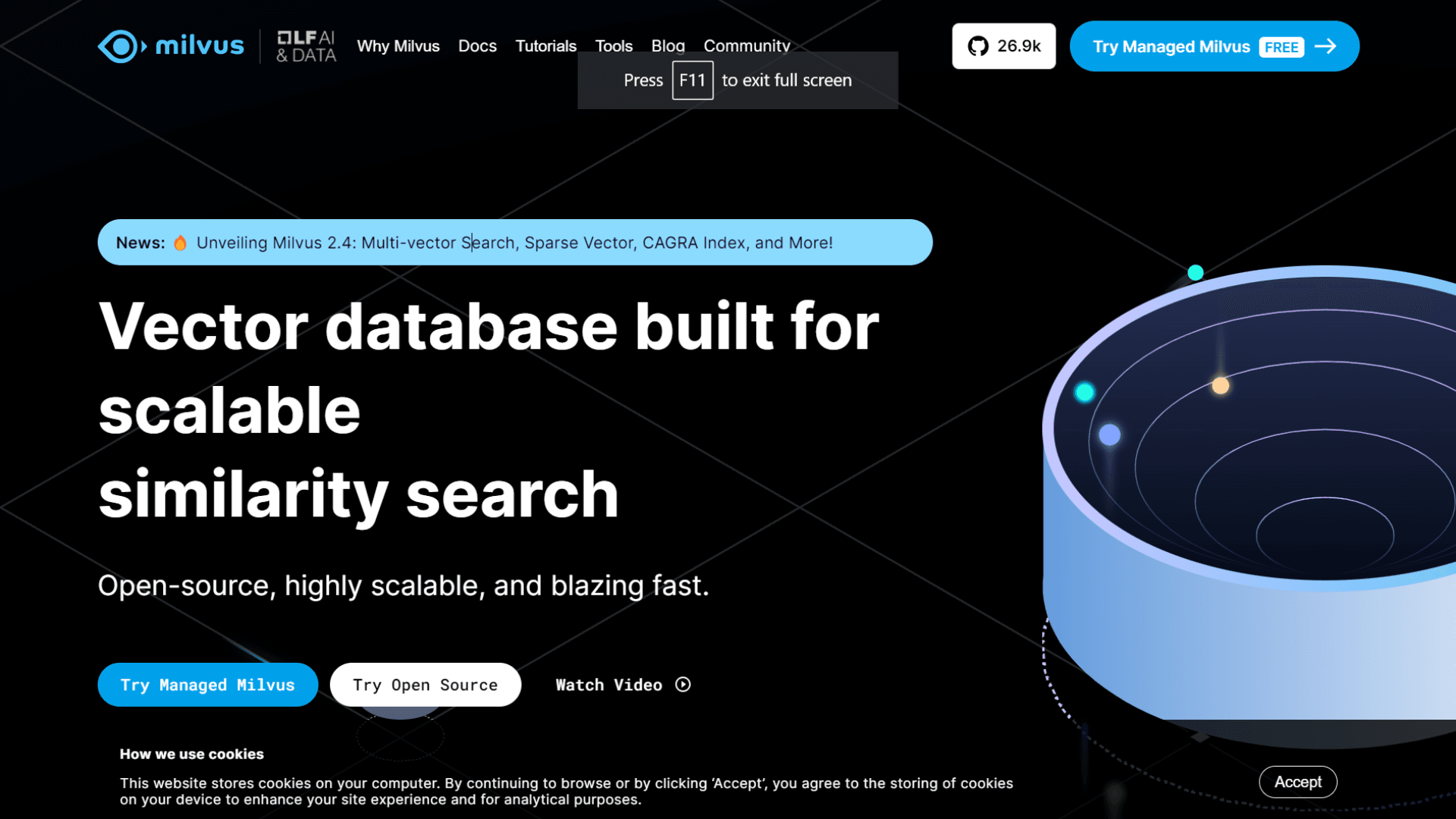The AI/ML journey from experimentation to deployment is as complex as it is exciting. As organizations seek to harness the power of data-driven insights, the need for robust, scalable, and efficient deployment pipelines has never been more crucial.
Here enter MLOps tools that empower data scientists, ML engineers, and DevOps teams to work in harmony, bridging the gap between experimentation and operationalization.
These MLOps tools cover a broad spectrum of functionalities, addressing every stage of the ML pipeline, from data preprocessing and model training to deployment, monitoring, and ongoing maintenance.
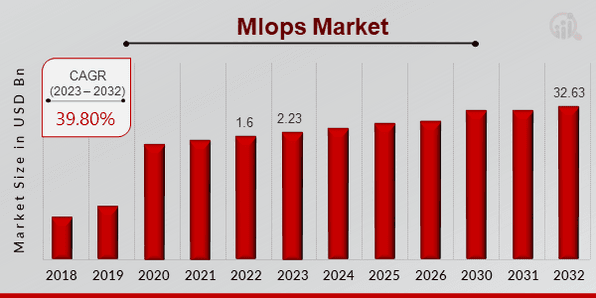
Top End-to-End MLOps Platforms
End-to-end MLOps tools offer a comprehensive solution for managing the entire machine learning lifecycle. These tools encompass a range of functionalities designed to streamline and automate the process, from ingesting and preparing data to training, deploying, and monitoring models in production. By utilizing end-to-end MLOps tools, organizations can ensure efficient development, improve model governance, and accelerate the time to value for their machine learning initiatives.
1. Microsoft Azure ML Platform
The Microsoft Azure ML Platform streamlines the machine learning lifecycle, offering a rich set of tools that facilitate model building, training, deployment, and maintenance. It features an intuitive drag-and-drop interface called Designer for model development, as well as automated machine learning capabilities that identify optimal machine learning pipelines and hyperparameters.
The Azure ML Studio serves as a centralized interface for managing all aspects of machine learning projects, including data ingestion, model training, and deployment. Azure ML incorporates robust MLOps capabilities to support continuous integration and deployment practices, including model versioning and tracking. Furthermore, it integrates seamlessly with other Azure services, enhancing its utility for comprehensive data and AI projects.
2. AWS SageMaker
AWS SageMaker offers a comprehensive suite of services designed to enable developers and data scientists to build, train, and deploy machine learning models more efficiently. SageMaker simplifies the model tuning process through its Automatic Model Tuning feature, which optimizes models by adjusting thousands of combinations to enhance prediction accuracy. For deployment, it offers easy-to-use options with automatic scaling, A/B testing, and end-to-end management of the production environment.
The key features of AWS SageMaker include a fully managed Jupyter notebook environment for easy access to data sources and code development. Additionally, it provides robust monitoring and logging capabilities to help maintain model performance and operational health.
3. Google Cloud Vertex AI
Google Cloud Vertex AI is a tool that integrates Google’s AI offerings into a unified API, simplifying the deployment and scaling of AI models. It provides a cohesive UI and API for managing the entire machine learning lifecycle, from data management to model deployment. Vertex AI features AutoML, which automates the selection of optimal learning algorithms and hyperparameters. It also supports the construction, deployment, and management of ML pipelines through AI Platform Pipelines.
For applications requiring pre-built solutions, Google offers a range of pre-trained models tailored to tasks like image recognition, natural language processing, and conversational AI. Vertex AI emphasizes model transparency and accountability through its Explainable AI tools, which help users understand and interpret model decisions.
Language Models (LLMs) Framework
Versatile Large Language Models (LLMs) Frameworks are essentially the software toolkits that enable the creation, training, and deployment of these powerful AI models. Developing an LLM is difficult because it's tricky to guarantee that the model behaves fairly. That's why LLM frameworks are handy, they help speed up the process of creating LLMs.
4.LangChain
LangChain is a software toolkit designed specifically to streamline the creation of applications powered by Large Language Models (LLMs). Unlike general LLM frameworks,it focuses on application development with pre-built components and a modular approach. This allows the users to easily combine building blocks like "chains" and "agents" to construct complex LLM apps.
LangChain also offers flexibility by working with various LLM providers, ensuring that the users can choose the best option. The framework extends beyond core functionalities with additional tools for monitoring, improvement, and deployment of the LLM application. In summary, it simplifies the process of building real-world applications that harness the power of LLMs.
LangChain offers a complete toolkit for building LLM applications. LangChain itself provides the core building blocks and libraries, LangSmith helps monitor and improve the application's performance, and LangServe simplifies deployment by turning the application into a user-friendly API. With LangChain, users can focus on crafting the application itself, while the other tools handle the quality assurance and deployment aspects.
Github Stars: 83.7k
5. LLamaIndex
LlamaIndex empowers the users to build custom search applications. It's a powerful toolbox that lets the users connect their own documents or data to various LLMs for super-charged information discovery.
It offers flexibility and control. users can choose which LLMs to use, fine-tune ranking for specific needs, and even integrate their own custom models. This makes it ideal for researchers and developers who want to create unique and effective search experiences. Unlike other platforms, LlamaIndex provides flexibility to use the LLM of their choice, whether it's open-source or private, along with control on how search results are presented based on their specific criteria and integration of their own custom models for specialized search tasks.
Github Stars - 31.2k
6. Hugging Face Agents
Hugging Face offers a powerful agent LLM framework. This toolkit lets the users to build custom agents with features like conversation history tracking, state management, and fine-tuned control. Essentially, users can tailor the LLM's responses to fit specific needs. This makes it ideal for developers and researchers who want to craft unique LLM interactions.
Hugging Face provides flexibility by offering different agent types:
HfAgent:
This agent utilizes inference endpoints for open-source models, making it a good option for leveraging readily available models.
LocalAgent:
If the users prefer to use their own model, then they can use this agent, which allows the users to leverage a model of their choice locally on their machine.
Want to explore more about how AI agents work and how to build them? Read our full guide on AI agents including use cases, tools, and frameworks.
OpenAiAgent:
If the users need access to closed models from OpenAI, then they can use this agent, which is designed to work specifically with those models.
Advanced Orchestration and Workflow Pipelines MLOps Tools
The MLOps tools we've listed are focused on advanced orchestration and workflow management in the MLOps ecosystem. Each tool has unique features designed to streamline and optimize machine learning workflows:
7. ZenML
ZenML provides an open-source MLOps framework with plug-in capabilities to help teams build portable production-grade machine learning pipelines. The architecture of ZenML efficiently connects various machine learning tools with plugins to prevent vendor lock-in while preserving team operational flexibility. Data scientists can focus on model development using ZenML's pipeline-based workflow that ensures reproducibility and scalability across different environments!
This framework provides stable workflow reliability from production to experiment across the machine learning pipeline by solid version control by monitoring data sets and models & their related code. ZenML natively supports key MLOps tools including experiment trackers like MLflow and Weights & Biases, as well as orchestrators such as Kubeflow and Airflow and model serving platforms. The comprehensive integration framework makes the arduous building of MLOps stacks into an easy activity.
MLOps teams can utilize ZenML to codify their entire infrastructure, which guarantees consistent environments across team members and deployment destinations using common stack configurations. ZenML encourages collaboration and transparency in data science teams using centralized storage of artifacts, which works to the advantage of organizations seeking to standardize their machine learning processes.
8. Mage AI
Mage AI automates many of the repetitive tasks typically associated with data science projects, such as data cleaning, preprocessing, and feature extraction. This not only speeds up the development cycle but also helps to avoid common errors that can occur during these stages. By generating code for these tasks, Mage AI reduces the barrier to entry for machine learning, enabling team members who may not be expert programmers to contribute effectively to the project.
Mage AI also supports collaborative features and integrates with version control systems, which is essential for managing changes and maintaining consistency across project iterations. By incorporating collaborative tools, Mage AI enables multiple users to work together seamlessly on AI projects. This facilitates teamwork, allowing team members to share ideas, insights, and code efficiently.
9. Kedro Pipelines
Kedro Pipelines offers a structured framework that helps data scientists and engineers create clear, maintainable, and efficient data pipelines. It distinguishes itself with a project template that enforces best practices in code organization and promotes the separation of data handling logic from business logic. This modular approach facilitates collaboration among team members, as well as the reuse of code across different projects.
Kedro's strong emphasis on abstraction simplifies data management across various environments (development, staging, and production), making pipelines easy to scale and replicate. Additionally, its visualization tools help users clearly understand the flow of data through the pipeline, which is crucial for troubleshooting and optimizing data processes.
10. Metaflow
Netflix developed Metaflow to address the difficulties in converting data science projects from research into large-scale production. It focuses on making data scientists more productive by providing a user-friendly interface and a powerful backend that can handle large-scale data processing tasks efficiently.
Metaflow automatically versions all data artifacts and code, which greatly enhances the reproducibility of experiments. This is particularly useful in a dynamic research environment where experiments are iterated rapidly. The seamless integration with AWS allows Metaflow to leverage cloud resources, such as computational power and storage, scaling the infrastructure needs as demand grows.
11. Flyte
Flyte is an advanced, open-source workflow orchestration platform tailored specifically for creating, deploying, and managing complex data processing and machine learning workflows at scale. It stands out for its use of Kubernetes, its type-safe interface, and a detailed user interface, which collectively contribute to its robustness, scalability, and ease of use.
Flyte utilizes Kubernetes, a powerful system for automating the deployment, scaling, and operations of application containers across clusters of hosts. This integration allows Flyte to orchestrate containerized tasks with high efficiency and reliability. Kubernetes' capabilities in handling distributed systems are crucial for managing the compute-intensive processes typically involved in large-scale data processing and machine learning tasks.
Renowned Model Deployment and Serving Tools
Model deployment and serving tools are crucial for bringing machine learning models from the development stage to real-world applications. These tools bridge the gap by streamlining the process of transitioning a trained model into a production environment.
12. NVIDIA Triton Inference Server
Triton Inference Server simplifies the implementation of ai models in production. Its open source software supports a wide range of frameworks, including TensorFlow, PyTorch and TensorRT, providing flexibility to the development process. It provides optimal performance for various tasks such as real-time image classification, batch data processing and even audio/video streaming.
Triton works seamlessly across cloud, data center and edge devices, providing deployment versatility. As part of NVIDIA AI Enterprise, Triton Inference Server accelerates the entire data science workflow from development to deployment.
Github Stars: 11k
13. BentoML
BentoML acts as a bridge between creating powerful machine learning models and deploying them. This open-source toolkit simplifies the process for developers, especially when working collaboratively with data scientists. It streamlines how models are packaged for deployment, making it easier to get the AI project up and running. It helps the users to focus on building innovative applications without getting worried about deployment complexities.
BentoML’s comprehensive toolkit for AI application development provides a unified distribution format that features a simplified AI architecture and supports deployment anywhere. It provides the flexibility and ease to build any AI application with any tools. It lets users to import models from any model hub or bring their own models built with frameworks such as PyTorch and TensorFlow, it’s local Model Store can manage them and build applications on top of them.
BentoML offers native support for Large Language Model (LLM) inference, Generative AI, embedding creation, and multi-modal AI applications.
Github Stars - 6.5k
14. Hugging Face Interface Endpoints
Hugging Face Inference Endpoints provides a secure production solution for easy deployment of any transformer, sentence transformers and diffusers model on a dedicated and auto-scaling infrastructure managed by Hugging Face. Inference Endpoints act like a user-friendly platform that lets the users to deploy their machine learning models into the real world without worrying about the complex back-end stuff. It handles the infrastructure, security, and scaling.
15. Kubeflow
Kubeflow is an open-source tool which simplifies machine learning deployments on Kubernetes by making them easy, portable, and scalable. it can seamlessly transition the ML workflows from development on systems to production environments in the cloud or on-premises, all while leveraging the flexibility and scalability of microservices. it understands that data scientists and ML engineers use a variety of tools, so it allows for customization based on specific needs.
Github Stars: 13.7k
Best Data and Pipeline Versioning Tools
Data and pipeline versioning are crucial aspects of ensuring reliability in machine learning projects. These tools allow the users to track changes in the data and code, revert to previous versions if needed, and collaborate effectively with team members. Choosing the right data and pipeline versioning tool depends on the specific needs and project requirements. Consider factors like scalability, ease of use, and integration with the existing tools while making the decision. Here are some popular data and pipeline versioning tools:
16. LakeFS
Built on the familiar principles of Git, lakeFS essentially transforms the object storage, like Amazon S3 or Google Cloud Storage, into a giant version control system for the data lake. Imagine being able to branch the data lake, just like a human would with code, to experiment with new data pipelines or transformations without affecting the production version. It allows users to effortlessly revert to previous versions, providing a safety net and streamlining troubleshooting.
One of the key strengths of Lakefs is its scalability. Designed to handle the massive datasets commonly found in data lakes, it leverages metadata management to efficiently track data versions. This metadata acts like a lightweight map, keeping track of changes without overwhelming the storage system. Additionally, the familiar interface for data engineers is a major plus.
Github Stars—4.1k
17. Data Version Control (DVC)
Data and pipeline versioning are essential for reliable and collaborative machine learning projects. Tools like DVC (Data Version Control) integrate with Git for versioning data files, models, and code. It excels at managing large files in cloud storage while keeping the local environment clean. It integrates with popular ML frameworks and offers a user-friendly interface, making it a valuable asset for ensuring reproducible and streamlined ML workflows.
Unlike Git, which struggles with massive datasets, DVC effortlessly handles large files like images, audio, and video. It securely stores these files in the chosen cloud storage (e.g., Amazon S3, Google Cloud Storage) while maintaining lightweight metadata within the Git repository. This keeps the local development environment responsive and version control efficient. It integrates seamlessly with popular machine learning frameworks like TensorFlow and PyTorch.
Github Stars: 13.1k
18. Pachyderm
Pachyderm offers data and model versioning along with experiment tracking functionalities, making it a one stop for managing the machine learning projects. It acts as a central repository for all the data, models, code, and experiment runs. This streamlines collaboration and governance by providing a single point of access for all the ML project's artifacts. it offers features specifically targeted for enterprise use cases, like role-based access control, which ensures proper data security and governance. Additionally, it integrates with popular cloud platforms and tools, making it easy to deploy and manage within the existing infrastructure.
While Pachyderm might be a more heavyweight solution compared to DVC or lakeFS, its focus on data, model, and experiment tracking functionalities, combined with its enterprise-ready features, makes it a compelling choice for organizations looking for a comprehensive platform to manage their machine learning pipelines.
Github Stars: 6.1k
Reliable Model Quality testing Tools
Reliable model quality testing tools are crucial for ensuring the effectiveness, reliability, and fairness of machine learning models. Here are some commonly used tools for model quality testing:
19. Truera
Truera is a comprehensive platform designed to address the critical challenges of trust and transparency in machine learning models. It aims to provide organizations with the tools necessary to understand, validate, and mitigate risks associated with LLM observability that improve relevance and reduce hallucinations, toxicity, and bias.
Truera offers advanced model interpretability techniques to help users understand the inner workings of ML models. By providing insights into how models make predictions, it enables users to interpret and trust model outputs more effectively. This transparency is crucial for understanding model biases, identifying problematic patterns, and ensuring model fairness. Addressing bias in ML models is a crucial aspect of responsible AI.
Truera provides tools for detecting and mitigating bias in model predictions across different demographic groups. By quantifying bias and offering actionable insights, it empowers organizations to make informed decisions to improve model fairness and equity.
20. Kolena
Kolena is an AI/ML model testing platform designed to streamline the validation process for machine learning models. It helps developers ensure their models are functioning correctly and will perform well in real-world scenarios. Kolena offers features like Test Case Studio and Data Quality Functions.
By using Kolena, developers can build and deploy AI models with greater confidence, leading to faster innovation and more trustworthy AI systems.
Most Trusted Feature Stores
Feature stores play a crucial role in the machine learning lifecycle, serving as the central hub where data is prepared, processed, and made available for model training and inference. With the increasing number of feature store solutions on the market, it's essential to identify the most trusted options used by data scientists.
21. Feast
Feast is an open-source feature store designed to streamline the management of features used in machine learning models. It acts as a central hub where users can store, organize, and access all the data points. Being open-source,it is a very affordable option. Users can download and use it without any licensing fees.
Feast integrates with the existing data infrastructure, so users don't have to completely overhaul the systems. It ensures that the models are trained and run using the same features, leading to more reliable results. It also offers options for both offline historical data and real-time data, allowing for fast access for both training and serving models.
Github Stars - 5.3k
22. Databricks Feature Stores
Databricks Feature Store takes the concept of a feature store to the next level. Built specifically for use within the Databricks Lakehouse platform, it offers a tightly integrated solution for managing machine learning features.
As a native part of Databricks, the Feature Store integrates effortlessly with the existing workflows and data pipelines. It tracks the origin and lineage of the existing features, ensuring transparency and reproducibility in the models. The Feature Store caters to both batch processing for historical data and real-time serving for online models. Data scientists and engineers can easily discover, share, and reuse features, accelerating the development process.
For someone who is already invested in the Databricks ecosystem and values tight integration, the Databricks Feature Store can be a powerful tool to streamline machine learning feature management.
Enhanced Model Monitoring in Production MLOps Tools
Enhanced model monitoring keeps an eye on how well machine learning models are doing once they're deployed. It helps by keeping track of important numbers, letting the user know if anything goes wrong, and showing clear pictures of what's happening. With this improved monitoring, users can catch problems early, make the models work better, and keep the trust of the AI systems high. Here are some enhanced model monitoring tools.
23 .Evidently
Evidently is a versatile tool designed to help data scientists and ML engineers gain deeper insights into their model's performance. It offers comprehensive model monitoring capabilities, allowing users to track key metrics, detect deviations, and diagnose issues in real-time. it stands out for its intuitive interface and user-friendly design, making it easy for users to navigate and interpret complex monitoring data. One of its notable features is its ability to generate detailed model performance reports, providing clear and actionable insights into model behavior. These reports include visualizations and statistical analyses that help users understand how their models are performing and identify areas for improvement.
Additionally, Evidently offers a range of explanation techniques to help users understand the factors affecting their model's predictions. By providing interpretable explanations, it enables users to uncover potential biases, errors, or inconsistencies in their models.
Github Stars - 4.7k
Leading Experiment Tracking and Model Metadata Management Tools
Experiment Tracking and Model Metadata Management Tools redefine efficiency by using experiment tracking and model metadata management. Designed for researchers, data scientists, and engineers, they streamline workflows, foster collaboration, and unlock valuable insights from data. Here are some leading experiment tracking and model metadata management tools:
24.Weights & Biases
Weights & Biases offers a revolutionary solution, streamlining their entire machine learning journey. It integrates seamlessly into the existing workflow and takes care of the heavy lifting. It automatically tracks every experiment run and version, ensuring they never lose track of their progress. users can gain instant insights with W&B's intuitive visualizations. users can track metrics, compare experiments, and identify trends all within a user-friendly interface. It's meticulous tracking ensures the research is always reproducible and verifiable. And also optimize the training process with real-time monitoring of CPU and GPU usage while identifying bottlenecks and allocating resources efficiently for peak performance.
Github Stars - 8.2k
25. Comet ML
CometML offers a machine learning platform that integrates smoothly with the existing infrastructure and tools. This integration simplifies the management, visualization, and optimization of models throughout their lifecycle, from training runs to production monitoring. By leveraging Comet, teams can streamline their workflows, focusing more on model development and less on compatibility issues, ultimately leading to more efficient and effective machine learning outcomes.
26.MLflow
MLflow is a set of tools that helps make ML projects easier and faster. It's like a one-stop shop for everything to do with ML, from start to finish, whether the users are working alone or on a big team.
It helps keep track of everything in the ML project, like what data was used, how it was changed, and how well the models worked. This makes it easier to understand the models and improve them over time. It also helps manage different versions of the models and make sure they're ready to be used in the real world. There are tools to help compare different models and find the best one.
Github Stars - 17.3k
Finest Vector databases and data retrieval tools
Vector databases are rapidly transforming the way we handle complex data in Machine Learning (ML) applications. These specialized databases excel at storing and retrieving high-dimensional data and are often used for tasks like image recognition, Natural Language Processing, and recommendation systems. Here are some of the finest vector databases and data retrieval tools.
27. Qdrant
Qdrant acts as a powerful search engine for information represented as high-dimensional points. Imagine these points as unique locations in a vast space. Qdrant excels at finding similar points to a given query, making it ideal for tasks like image or product recommendation. The secret sauce lies in its ability to store and search not just the data points themselves but also additional information attached to each point. Think of it as adding labels to the data points. This extra layer of detail allows the users to refine their search and retrieve even more relevant results.
Overall, Qdrant empowers users to efficiently search through complex data and unlock valuable insights.
Github Stars: 18k
31. Milvus
Milvus, similar to Qdrant, dives into the realm of searching for specific information within complex data. Unlike traditional search engines that rely on keywords, Milvus specializes in a technique called vector similarity search. This means it excels at finding data points that are similar to a given query, even if those points aren't identical.
One of the key strengths of Milvus is its ability to handle vast amounts of data. It's designed to be highly scalable, meaning can easily add more storage and processing power as the data grows. Additionally, Milvus offers an easy-to-use interface for storing, searching, and managing data. This makes it accessible to developers of all levels who want to leverage the power of vector similarity search in their applications.
Github Stars: 26.9k
Supercharge Your ML Projects
There are many powerful tools out there to streamline your machine learning projects (MLOps). This blog post explored 31 of the best options in 2025, designed to assist you in training, deploying, and maintaining your models seamlessly.
Remember, the right tools can significantly accelerate and simplify your machine learning endeavors. However, the most critical factor remains a well-defined plan encompassing the entire project lifecycle. By combining a strategic approach with the right tools, you can unlock the full potential of your machine learning initiatives.
Additionally, consider SoluteLabs' expertise in MLOps. We can help you navigate the complexities of the ML lifecycle, ensuring your models are effectively operationalized and deliver tangible business value.

